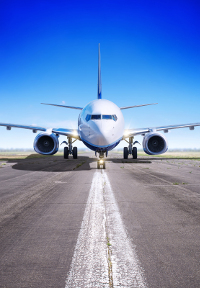Aviation Trade Schools & Colleges
An aviation school can do more than train you for one of the world's most appealing industries. You can develop highly marketable skills as you learn about the aircraft, technologies, and procedures that enable people to take flight.
A fun and practical education engages your mind as well as your hands. For example, most aviation maintenance technician training allows students to work on real airplane engines or avionics equipment. That's why getting your airframe and powerplant training can be so interesting. And it's why preparing for any other type of aviation career is often equally as compelling—whether it's learning how to pilot a plane or carrying out reliable dispatch services.
Aviation Programs
Aviation Trade Schools
Sponsored Listings
National Aviation Academy
- Tampa Bay, Florida
- Concord, Massachusetts
- Advanced Aircraft Systems
- Aviation Maintenance Professional
- Aviation Maintenance Technician
Aviation Institute of Maintenance
- Phoenix, Arizona
- Fremont, California
- Orlando, Florida
- Atlanta, Georgia
- Chicago, Illinois
- Indianapolis, Indiana
- Kansas City, Missouri
- Las Vegas, Nevada
- Charlotte, North Carolina
- Philadelphia, Pennsylvania
- Dallas, Texas
- Houston, Texas
- Manassas, Virginia
- Norfolk, Virginia
- Aviation Maintenance Technical Engineer
- Aviation Maintenance Technician
- Aviation Maintenance Technology
- Avionics Technician
Spartan College of Aeronautics and Technology
- Los Angeles, California
- Riverside, California
- Denver, Colorado
- Tulsa, Oklahoma
- Aviation Electronics Technology (Avionics)
- Aviation Flight
- Aviation Maintenance Technology
- Nondestructive Testing Technology & Quality Control Management
Universal Technical Institute
- Avondale, Arizona
- Long Beach, California
- Miramar, Florida
- Canton, Michigan
- Dallas/Fort Worth, Texas
- Houston, Texas
- Airframe and Powerplant Technician
- Aviation Maintenance
- Aviation Maintenance Technology
5 Career Areas in Aviation and Aerospace That Offer Big Opportunity
 The aviation industry allows skilled workers to enjoy exciting yet reliable careers. According to the Bureau of Labor Statistics, in 2024, the air transportation sector directly employed over 560,000 people in the U.S.
The aviation industry allows skilled workers to enjoy exciting yet reliable careers. According to the Bureau of Labor Statistics, in 2024, the air transportation sector directly employed over 560,000 people in the U.S.
Air travel and cargo shipments are on the rise, and Boeing forecasts that from 2024 to 2043, airplane travel and cargo traffic will continue to increase.
This all means that going after an aviation career can really pay off. These five areas of the industry are especially promising:
Salary information is based on 2023 data from the Bureau of Labor Statistics unless otherwise indicated.
1. Aviation and Avionics Maintenance
Being an aircraft mechanic or avionics technician can be exhilarating. Every day, you get to work on some of the most advanced and fascinating technologies ever created—from airplane engines and assemblies to radar and navigation systems. And you get to help ensure that people travel the skies safely.
Plus, check this out: Boeing predicts that, at the global level, 716,000 new aircraft maintenance technicians will be needed between 2024 and 2043—about 123,000 of them in North America alone. And the pay can be very good. For instance, in 2023, the median annual wage for U.S. aircraft mechanics was $75,020, with some technicians earning above $114,750. The numbers were very similar for those who repair and maintain avionics equipment.
2. Air Traffic Control and Dispatching
Safety is the number one priority in the aviation industry. And efficiency isn't far behind. That's why the sector relies on professionals who are well-trained in logistics, flight coordination, and dispatching. In 2023, the median annual pay for U.S. air traffic controllers was $137,380. And for airfield operations specialists—people who help ensure safe takeoffs and landings—the median pay was $51,140, with some experienced dispatchers earning more.
3. Piloting and In-Flight Services
 Do you imagine yourself working as a pilot one day? With the proper flight training, you can make great progress in achieving that vision. Many of today's pilots will be retiring in the coming years, creating opportunities for people like you. In fact, between 2024 and 2043, about 674,000 new commercial airline pilots will be needed across the world, according to Boeing. And the pay is often very good. In 2023, the median salary for such pilots was $113,080 in the U.S.
Do you imagine yourself working as a pilot one day? With the proper flight training, you can make great progress in achieving that vision. Many of today's pilots will be retiring in the coming years, creating opportunities for people like you. In fact, between 2024 and 2043, about 674,000 new commercial airline pilots will be needed across the world, according to Boeing. And the pay is often very good. In 2023, the median salary for such pilots was $113,080 in the U.S.
But pilots aren't the only ones who get to work in the sky. Globally, about 24.2 million commercial flights were conducted in 2021, according to the International Civil Aviation Organization. And most of them have a lot of passengers on board. So becoming a flight attendant could be another appealing option.
4. Airport and Airline Management and Services
Airport and airlines rely on ground crews and other workers who understand aviation fundamentals related to security, safety, flight operations, industry regulations, and other areas. From gate agents to cargo handlers to airport managers, the variety of career possibilities in this area is truly expansive.
5. Weather Science and Aerospace Engineering
Aviation is greatly impacted by what's happening with the weather. So meteorologists provide a crucial service that helps airlines and individual pilots plan for rough skies or avoid trouble. And when it comes to the design and testing of aircraft and space vehicles, you can't ignore the contributions of aerospace engineers. In 2023, the median salary for engineers in this field was $130,720.




